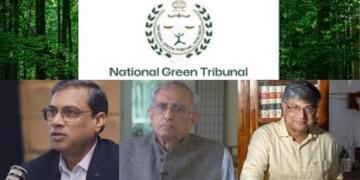In the fast-paced arena of project management, the pursuit of efficiency stands as a defining hallmark. With the relentless march of time and escalating demands, the need to streamline processes has become more crucial than ever. One individual who has made significant strides in this domain is Reshma Sudra, a seasoned professional who has carved her niche in the industry by revolutionizing project management through the strategic application of automation.
The Foundation of Efficiency: Automation in Project Management
Reshma Sudra recognizes that traditional project management often entails a labyrinth of manual tasks, from resource allocation to progress tracking. These tasks not only consumed valuable time but also left room for errors, impeding the seamless execution of projects. To address this challenge, Reshma turned to automation as a catalyst for change.
Automation, according to Reshma, serves as the cornerstone of efficiency in project management. It empowers the automation of repetitive tasks, thereby liberating time for more strategic pursuits. By harnessing the power of automation tools and technologies, Reshma sought to streamline workflows, foster collaboration, and drive superior project outcomes.
From Theory to Practice: Implementing Automation in Projects
Reshma Sudra’s journey in efficiency through automation is best illustrated through the practical application of automation in her projects. For instance, she led the implementation of project management software equipped with robust automation capabilities. This initiative brought about a significant reduction in turnaround times and provided enhanced visibility into project milestones. Real-time collaboration among team members was facilitated, ensuring seamless coordination across diverse stakeholders.
Moreover, automation plays a pivotal role in risk management and decision-making processes. Through predictive analytics and data-driven insights, potential bottlenecks were proactively identified and risks mitigated. This proactive approach not only minimized project disruptions but also instilled confidence among clients and stakeholders.
Driving Efficiency and Innovation
Beyond optimizing existing processes, automation fostered a culture of innovation within Reshma’s project teams. By automating routine tasks, team members were empowered to focus on value-added activities, nurturing creativity and strategic thinking. This shift towards innovation not only propelled project outcomes but also positioned Reshma’s organization as a trailblazer in the industry.
Furthermore, automation played a key role in enhancing client satisfaction and driving business growth. By consistently delivering projects ahead of schedule and exceeding client expectations, Reshma forged long-term partnerships built on trust and excellence. Automation enabled seamless adaptation to evolving client needs, positioning her organization as a preferred partner for future endeavors.
Looking Ahead: The Future of Automation in Project Management
As Reshma reflects on her journey in efficiency through automation for project management, she remains optimistic about the future of the field. Rapid advancements in technology, coupled with a growing emphasis on digital transformation, promise to reshape the landscape of project management in profound ways.
Looking ahead, Reshma is committed to staying at the forefront of innovation, leveraging emerging technologies to drive even greater efficiency and effectiveness in project delivery. By embracing automation as a catalyst for change, she is confident in her ability to navigate the complexities of project management and achieve unparalleled success.
In conclusion, Reshma Sudra’s approach to efficiency through automation is not merely a strategy but a philosophy that underpins excellence in project management. Through strategic implementation and unwavering commitment, she believes in harnessing the power of automation to unlock new levels of efficiency, collaboration, and innovation, paving the way for a brighter future in project management.




























